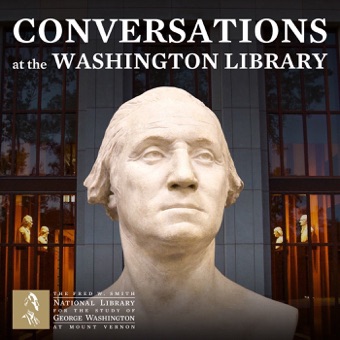
Conversations at the Washington Library
Mount Vernon
Mount Vernon hosts numerous programs every year welcoming individuals who share our dedication to generating and disseminating knowledge about early American history This series is an opportunity to go behindthescenes and explore the indepth work done to build a more complete understanding of the past
- 44 minutes 12 secondsCommunication and the Digital Future with Dr. Colleen Shogan
This podcast episode features an interview with Dr. Colleen Shogan, the director of the National Archives and Records Administration. Dr. Shogan discusses the importance of effective leadership and communication, particularly in her role overseeing a vast collection of historical records. She emphasizes the need for clear and direct communication, especially when delivering difficult messages. Dr. Shogan also reflects on her career path, highlighting the influence of her academic background in political science and her experiences working in government. She shares insights into the challenges of leading a large organization, navigating the digital transformation, and the importance of being adaptable and thoughtful in decision-making. The episode concludes with Dr. Shogan's call for greater public engagement with the National Archives and a reminder that these records belong to the citizens.
For more information about this program, go to www.GeorgeWashingtonPodcast.com.
Leadership and Legacy: Conversations at the George Washington Presidential Library is a production of the Mount Vernon Ladies Association. This podcast is hosted by Dr. Patrick Spero and Dr. Lindsay Chervinsky. Our executive producers are Dr. Anne Fertig and Heather Soubra.
12 November 2024, 5:00 am - 45 minutes 35 secondsLearning from History with General David Petraeus and Andrew Roberts
In this episode of Leadership and Legacy, General David Petraeus and historian Andrew Roberts discuss the art of leadership, drawing from their book Conflict: The Evolution of Warfare from 1945 to Ukraine. They explore the timeless principles of strategic leadership, emphasizing the importance of getting the big ideas right, communicating them effectively, overseeing their implementation, and adapting to changing circumstances. Through examples from history, including Napoleon, George III, and Churchill, they illustrate how these principles have been applied by successful leaders across different contexts.
For more information about this program, go to www.GeorgeWashingtonPodcast.com.
Leadership and Legacy: Conversations at the George Washington Presidential Library is a production of the Mount Vernon Ladies Association. This podcast is hosted by Dr. Patrick Spero and Dr. Lindsay Chervinsky. Our executive producers are Dr. Anne Fertig and Heather Soubra.
29 October 2024, 3:51 pm - 1 hour 6 secondsService and Respect with General John Allen
In this episode of Leadership and Legacy, Dr. Patrick Spero interviews General John Allen, a retired U.S. Marine Corps four-star general, about his views on leadership. General Allen defines leadership as the means to accomplish difficult tasks and emphasizes the importance of humility, service, and respect. He shares his personal experiences, from his early days as a Marine officer to his strategic command roles, highlighting the influence of his father and the lessons he learned from his noncommissioned officers. General Allen also discusses the transformative role of artificial intelligence in modern warfare and its implications for leadership in the civilian sector.
For more information about this program, go to www.GeorgeWashingtonPodcast.com.
Leadership and Legacy: Conversations at the George Washington Presidential Library is a production of the Mount Vernon Ladies Association. This podcast is hosted by Dr. Patrick Spero and Dr. Lindsay Chervinsky. Our executive producers are Dr. Anne Fertig and Heather Soubra.
15 October 2024, 5:00 am - 59 minutes 53 secondsIntegrity and Democracy with Representatives Steve Womack and Pat Ryan
In this episode of Leadership and Legacy, Representatives Steve Womack and Pat Ryan, two elected officials on opposite sides of the aisle, discuss their views on leadership. They emphasize the importance of integrity, direction, and leading by example, drawing on their military experiences to illustrate these principles. Both congressmen reflect on the challenges of leadership in a polarized political landscape and the complexities of making difficult decisions that balance party loyalty with the needs of their constituents.
For more information about this program, go to www.GeorgeWashingtonPodcast.com.
Leadership and Legacy: Conversations at the George Washington Presidential Library is a production of the Mount Vernon Ladies Association. This podcast is hosted by Dr. Patrick Spero and Dr. Lindsay Chervinsky. Our executive producers are Dr. Anne Fertig and Heather Soubra.
1 October 2024, 5:00 am - 57 minutes 47 secondsLeading Change with Carly Fiorina
In this episode of Leadership and Legacy, Dr. Patrick Spero interviews Carly Fiorina, former CEO of Hewlett Packard. She discusses her experiences at AT&T and HP, highlighting the challenges of leading change within large organizations. Fiorina also reflects on the role of technology in leadership and the importance of preserving history in the digital age.
The conversation also touches on Fiorina's views on corporate responsibility and her vision for the 250th anniversary of the American Revolution. Fiorina concludes by sharing her thoughts on the importance of civic engagement and the role of citizens in shaping the nation's future.
For more information about this program, go to www.GeorgeWashingtonPodcast.com.
Leadership and Legacy: Conversations at the George Washington Presidential Library is a production of the Mount Vernon Ladies Association. This podcast is hosted by Dr. Patrick Spero and Dr. Lindsay Chervinsky. Our executive producers are Dr. Anne Fertig and Heather Soubra.
17 September 2024, 5:00 am - 1 minute 49 secondsNOW AVAILABLE: Inventing the Presidency
Now Available on all platforms! In this new podcast from the George Washington Presidential Library at Mount Vernon, we'll explore George Washington as both President and precedent. From the very origins of the US presidency at the Constitutional Convention to Washington’s final warnings in his Farewell Address, we will break down how one man shaped the Presidency—and the many times that it could have all fallen apart.
Learn more at www.georgewashingtonpodcast.com.
12 March 2024, 6:47 pm - 53 minutes 44 seconds229. A Final Conversation with Dr. James Ambuske
In this final episode of Conversations at the Washington Library, Drs. Anne Fertig and Alexandra Montgomery bid farewell to former Digital Historian and host, Dr. James Ambuske, through a retrospective of his time and work at the George Washington Podcast Network.
9 May 2023, 12:31 am - 43 minutes 20 seconds228. Editing the Adams Family Papers with Dr. Sara Georgini
The Adams Family is one of the more prominent families in American history. They were at the center of the American Revolution, they helped create a new republic, shaped the young nation’s foreign policy, and later were central to the development of the history profession.
Fortunately, we know much about their lives because of the countless letters and diaries they’ve left us. And it is up to a team of editors at the Massachusetts Historical Society to help us make sense of it all.
On today’s show, Dr. Sara Georgini joins Jim Ambuske to talk about what it’s like to edit the Adams Family Papers and the questions they help us answer.
Georgini is Series Editor for The Papers of John Adams, and she is also the author of Household Gods: The Religious Lives of the Adams Family, published by Oxford University Press in 2018.
We’re joined today by co-host Dr. Anne Fertig, the Washington Library’s Digital Projects Editor.
28 November 2022, 11:32 am - 25 minutes 49 seconds227. Welcoming a Deserving Brother with Mark TabbertIn 1752, George Washington joined the Masonic Lodge in Fredericksburg, Virginia. He was just twenty years old. Despite his early interest in masonry, Washington was not as active in the organization as some might imagine, but Masonic Lodges became important sites of social gathering for men in early America. And while masons and masonic rituals played important roles in the American Revolution and in the early days of the Republic, you won’t find any conspiracy theories here. On today’s show, Mark Tabbert joins Jim Ambusketo discuss his new book, A Deserving Brother: George Washington and Freemasonry, published by the University of Virginia Press in 2022. Tabbert is Director of Archives and Exhibits at The George Washington Masonic National Memorial in Alexandria, Virginia.14 November 2022, 12:28 pm
- 42 minutes 45 seconds226. Cross-examining Washington's Heir with Prof. Gerard MaglioccaWhen George Washington wrote his final will in the months before he died in December 1799, he named Bushrod Washington as heir to his papers and to Mount Vernon. He took possession of his uncle’s Virginia plantation when Martha Washington passed away in 1802. But Bushrod was not as interested in agriculture as George had been. He was a lawyer who later became an Associate Justice on the United States Supreme Court, where he became a staunch ally of Chief Justice John Marshall. Yet, like George, Bushrod owned numerous enslaved people and became one of the founding members of the American Colonization Society, an organization dedicated to resettling freed people in Africa. On today’s show, Professor Gerard Magliocca joins Jim Ambuske to discuss his new book, Washington’s Heir: The Life of Justice Bushrod Washington, published by Oxford University Press in 2022. Magliocca is the Samuel R. Rosen Professor at the Robert H. McKinney School of Law at Indiana University.31 October 2022, 9:44 am
- 27 minutes 16 seconds225. Doing Public History with Dr. Anne Fertig
Why is the way that we remember the past oftentimes different than historical reality? And how can we use public history to inform conversations in the present about events that took place centuries earlier?
On today’s episode, Jim Ambuske introduces you to Dr. Anne Fertig, our newest colleague here at the Washington Library, who will help us think through some of these questions.
Dr. Fertig is a specialist in eighteenth century literature, historical memory, and women’s history. She’s the founder and co-director of Jane Austen & Co., a lecture series about Jane Austen and her broader world, and she is our new Digital Projects Editor at the Washington Library.
17 October 2022, 9:45 am - More Episodes? Get the App
Your feedback is valuable to us. Should you encounter any bugs, glitches, lack of functionality or other problems, please email us on [email protected] or join Moon.FM Telegram Group where you can talk directly to the dev team who are happy to answer any queries.
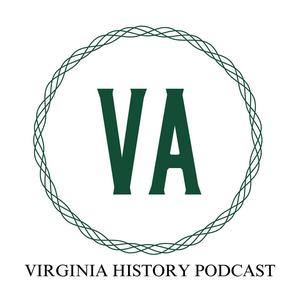 Virginia History Podcast
Virginia History Podcast
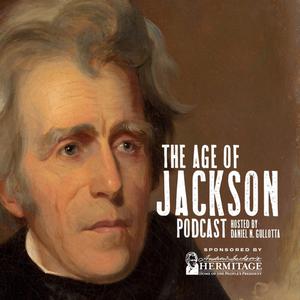 The Age of Jackson Podcast
The Age of Jackson Podcast
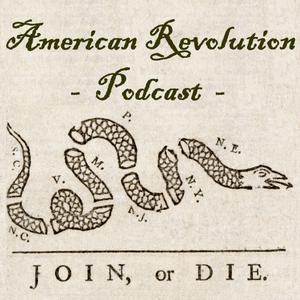 American Revolution Podcast
American Revolution Podcast
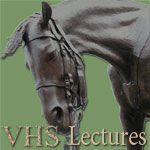 Virginia Historical Society Podcasts
Virginia Historical Society Podcasts